ARTICLE AD BOX
1 hour ago
By Jayne McCormack, BBC News NI political correspondent

 BBC
BBC
The Democratic Unionist Party (DUP) has launched its 2024 election manifesto.
The party, which won the most Westminster seats in Northern Ireland at the last general election, is fielding candidates in 16 of Northern Ireland's 18 constituencies.
It chose to stand aside in North Down and in Fermanagh and South Tyrone to give other unionist candidates a stronger chance of winning the seat.
This will be Gavin Robinson’s first election as leader and his manifesto includes pledges to continue pressing for better financial support for Northern Ireland and promoting the union.
Here are some of the DUP's policies, analysed by BBC Northern Ireland experts.
Remove barriers within the UK

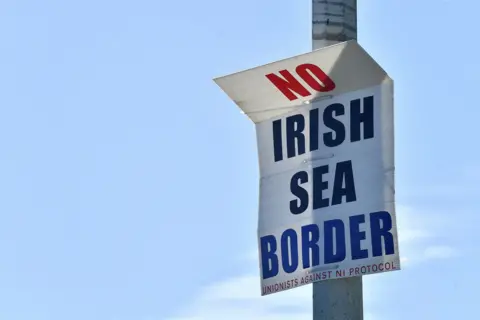 reuters
reuters
It's eight years exactly since the UK voted to leave the EU.
Despite campaigning for Leave in that referendum, the DUP has spent the best part of the past five years arguing that the UK-EU deal leaves Northern Ireland a place apart.
The party even walked out of devolved government at Stormont over the Irish Sea border in 2022, and kept the power-sharing institutions down for two years, in a bid to secure changes to the arrangements.
They said they'd achieved such changes in February this year. which at the time then-leader Sir Jeffrey Donaldson claimed would mean "zero checks and zero paperwork" on goods crossing from Great Britain into Northern Ireland.
But this manifesto has in black and white (or rather red, white and blue) a clear acknowledgement that the deal didn't live up to what the party argued at the time.
It states that the DUP will "continue to fight to fully restore Northern Ireland's place within the UK", including removing the application of EU law and the internal sea border that creates.
That commitment matches the more careful language used by now-DUP leader Gavin Robinson, who has recently admitted there should have been "more cautious optimism" about the details of the deal.
It also allows a party that was divided over the decision to return to Stormont to present a united front when it comes to campaigning for votes in this election.
As for whether the DUP can secure any further changes, much depends on the appetite of the next government, which could already be Brexit-weary from events of the past decade.
Pledges on legal migration and labour shortages

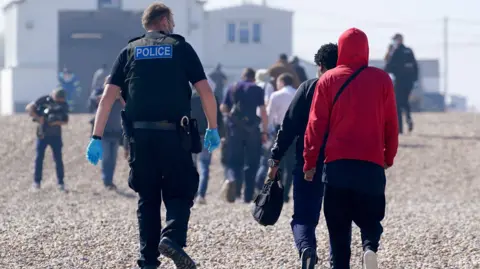 PA Media
PA Media
The DUP manifesto looks in two directions on migration.
It suggests a more liberal approach to legal migration is needed to help tackle labour shortages in Northern Ireland.
It also wants the government to respond to a recent court ruling, which disapplied large parts of the Illegal Migration Act in Northern Ireland including removals to Rwanda.
It found that the act breaches human rights protections that flow from the Good Friday Agreement and are further underpinned by the Windsor Framework.
On legal migration, the DUP says the current system of work visas is not serving the needs of smaller businesses in Northern Ireland and suggests measures including a review of the salary threshold for migrant workers.
The DUP wants an illegal migration policy which "applies equally across the UK". That ambition would be helped by a Labour government, which has pledged to ditch the Rwanda policy.
Get recurring funding for public sector pay awards

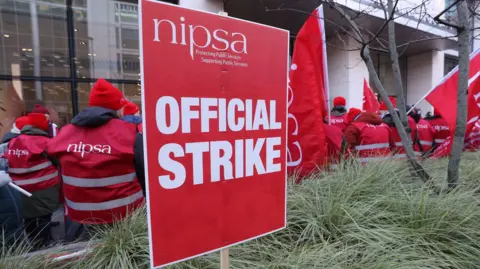 PA Media
PA Media
This is something the DUP has been campaigning about for some time.
Last month, the Northern Ireland Executive and UK government agreed to review how Northern Ireland public services are funded.
Public spending per head in Northern Ireland is higher than in England as it costs more to deliver public services of an equivalent standard for a smaller population.
The agreement will mean Northern Ireland gets a "needs-based" top-up to its normal funding allocations.
Independent experts on the Northern Ireland Fiscal Council have estimated that Northern Ireland needs about £124 per head for every £100 per head spent in England.
The government has agreed to top-up any funding allocations by 24% as a way to get back to the assessed level of need.
It also means Stormont will not face a financial "cliff edge" in 2026 when one-off funding from the £3bn devolution restoration funding package runs out.
The executive has received an assurance it will be funded "at need" in 2026 but what that amounts to will not be clear until the next government carries out a UK-wide spending review.
Many public sector workers, including healthcare staff and civil servants, have been offered pay rises this year as a result of the financial package.
Of the £3.3bn deal to restore power sharing, about £600m of that money was earmarked for public sector pay.
But unions have raised concerns about what happens when that one-off funding runs out.
Work for increased farm support payments

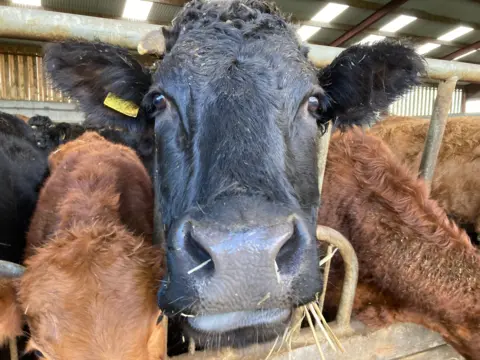
It’s no surprise that the DUP has pinned its colours to financial certainty and stability for farmers, pledging to seek “an increased, ring-fenced and multi-annual farm support and development budget”.
The party has long been perceived as the champion of agriculture, fisheries and the agri-food industry, although it no longer holds the ministry.
A new Future Farm Support and Development programme is already being phased in by Stormont, aimed at creating a more financially and environmentally sustainable framework for agriculture.
The DUP manifesto commits to opposing any reduction in compensation for bovine TB (bTB), which is the lion’s share of the £50m annual bill.
It also pledges to support “robust” eradication policies, including a badger cull, after an order by the former minister and DUP MLA Edwin Poots was quashed by the courts last year.
Food security is set against a backdrop of just transition (which refers to the need to move to climate-friendly policies in a fair manner) with a warning that “the needs of our farmers cannot be sacrificed in favour of other policy objectives”.
With current restrictions on on-farm development, the manifesto highlights that “investing in agriculture and primary production is essential for boosting productivity, job creation and delivering progress toward environmental goals”.
Oppose assisted suicide and improve access to health services

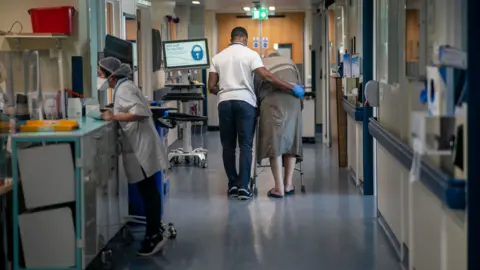 PA Media
PA Media
It’s not until the DUP manifesto's final sentence on health that, in just 10 words, the party raises perhaps the most unexpected and interesting pledge.
The party says it "will also firmly oppose efforts to legalise assisted suicide".
An emotive and controversial issue, how Northern Ireland will address it is still at inception but, like elsewhere in the UK, the debate is starting to gather momentum.
Scotland, Jersey and the Isle of Man are all considering changing the law to let terminally-ill people end their lives - it’s hard to fathom how political parties and the public here might reach consensus.
Elsewhere, there are several mentions of turning outside of Northern Ireland, to the rest of the UK, for providing solutions to local healthcare problems.
There is no specific mention of cross-border healthcare, something that former health minister Edwin Poots began in 2012 with an all-Ireland paediatric cardiac service.
Instead, the DUP said it has sought to improve access for patients to NHS services and treatments available in other parts of the UK - although it does not specifically state what services and how many have benefitted.
To "drive" down waiting lists again, it points to hooking up with "national independent providers".
That suggests knocking on private doors but who, where and how is vague.
When I asked for clarity, a DUP member explained it could involve, for instance, "what they do in the south when they use independent/private healthcare providers to do scans - something like that".
Endometriosis, rare diseases, and cystic fibrosis are mentioned as is providing better for GPs.
While the manifesto touches many pressure points, delivery will require funding, cross-party/departmental co-operation and thinking outside the traditional box.



 4 months ago
22
4 months ago
22
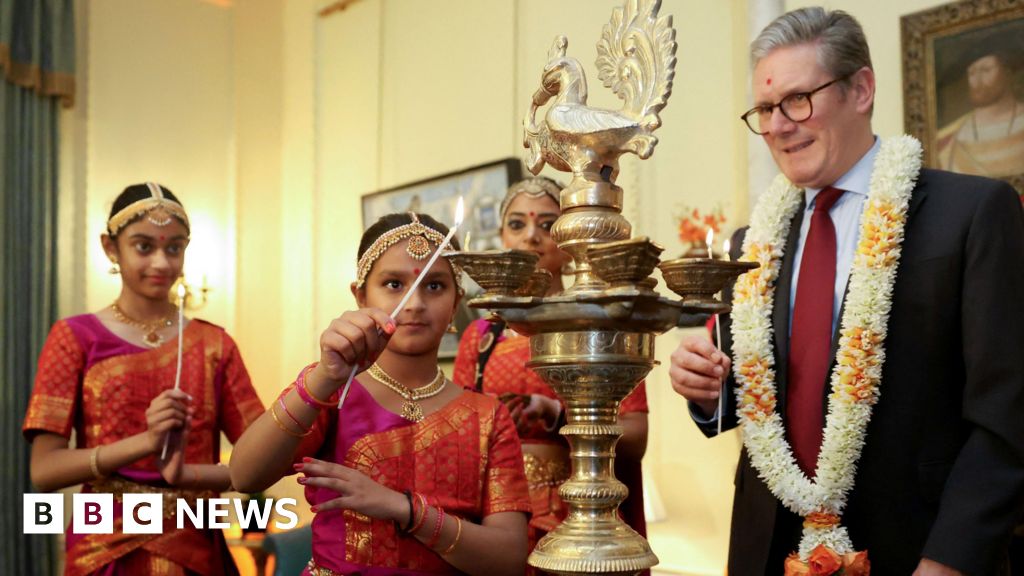
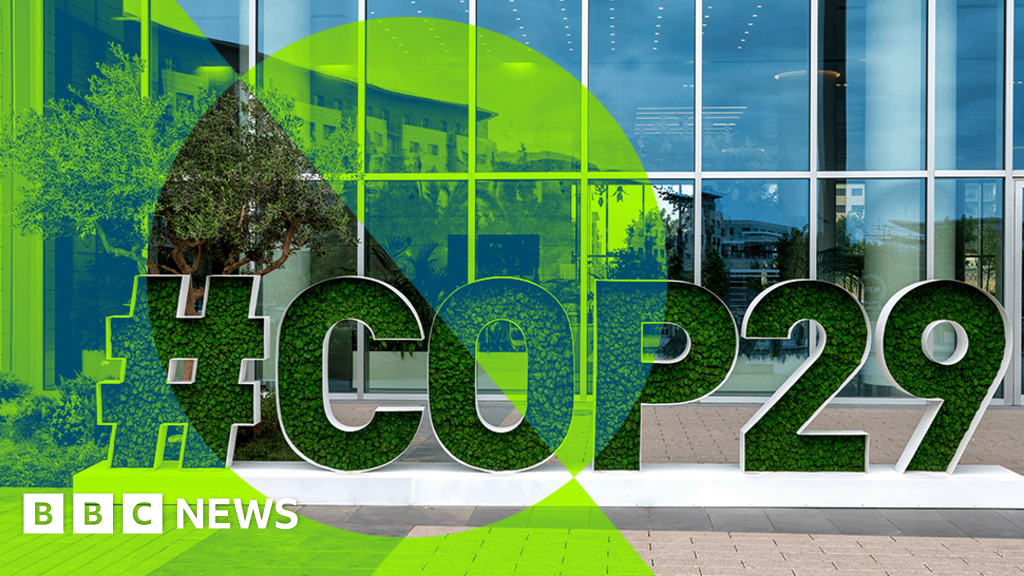
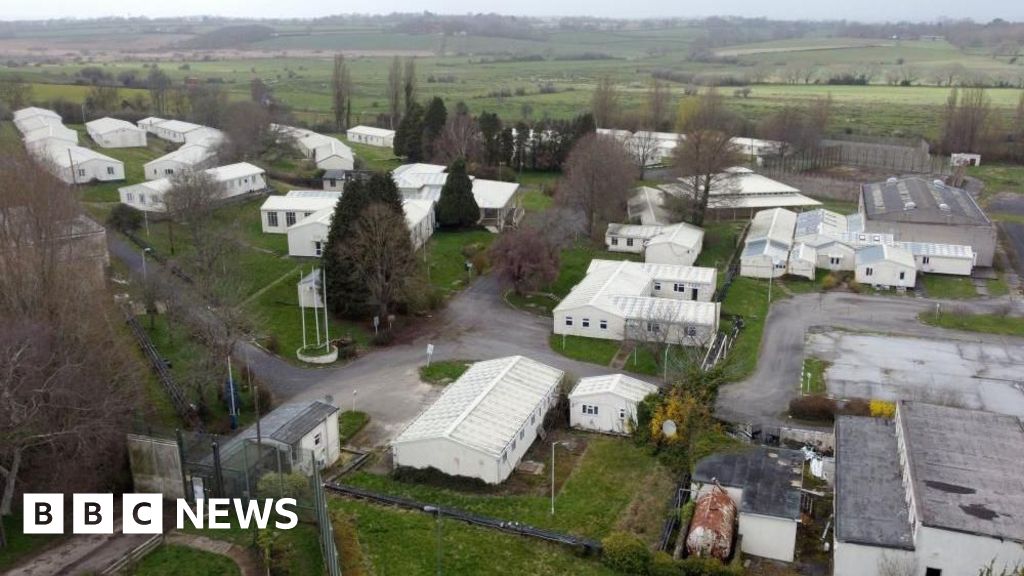





 English (US)
English (US)